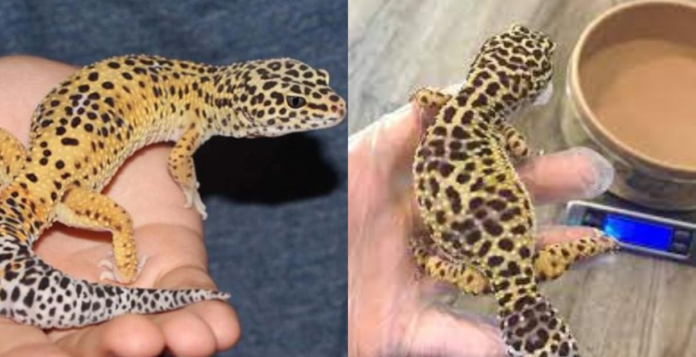Leopard geckos can typically go without eating for around 10-14 days, but this can vary depending on factors like age, health, and environmental conditions. However, it’s essential to monitor them closely if they’re not eating for an extended period, as it could indicate an underlying health issue.
Adult leopard geckos can survive for quite a long time without eating, thanks to their fat reserves stored in their tails. In general, a healthy adult leopard gecko can go for up to 2 weeks or more without a meal. However, it’s important to note that this isn’t ideal for their health. Just like with humans, regular meals are important for maintaining good health and keeping your pet active. If you notice your gecko isn’t eating for an extended period, it’s best to consult a veterinarian to rule out any underlying health issues.
how long can a leopard gecko go without eating
This article is about how long can a leopard gecko go without eating. Leopard geckos, scientifically known as Eublepharis macularius, are small reptiles native to the deserts of Afghanistan, Pakistan, and northwest India. Their unique physiology and behavior allow them to adapt to harsh environments, including periods of limited food availability. Understanding how long a leopard gecko can go without eating involves considering various factors, including their natural biology, health status, age, and environmental conditions.
In the wild, leopard geckos exhibit opportunistic feeding behavior, consuming a diet primarily consisting of insects such as crickets, mealworms, and dubia roaches. However, they can endure periods of food scarcity by relying on stored fat reserves. Leopard geckos are ectothermic, meaning their metabolism and activity levels are influenced by external temperatures. During cooler periods or when food is scarce, their metabolic rate decreases, allowing them to conserve energy and survive longer without eating.

Read more
how many engineers does it take to change a lightbulb
how long do cigars last in plastic wrapper
how much is an old copper boiler worth
In captivity, leopard geckos typically have access to a consistent food supply, but there may be instances when they refuse to eat due to stress, illness, or environmental changes. While leopard geckos can survive for extended periods without food, it’s crucial to monitor their health closely during periods of fasting. Juvenile geckos and breeding females may have higher energy requirements and may not tolerate fasting as well as healthy adult males.
The duration a leopard gecko can go without eating varies depending on individual factors. On average, a healthy adult leopard gecko can typically fast for 10 to 14 days without adverse effects. However, this timeframe is not absolute and can be influenced by factors such as temperature, hydration levels, and overall health. During fasting periods, it’s essential to provide access to clean water to prevent dehydration.
If a leopard gecko refuses to eat for an extended period or exhibits other concerning symptoms such as weight loss, lethargy, or difficulty shedding, it’s crucial to consult a reptile veterinarian promptly. Prolonged fasting can lead to health complications such as metabolic bone disease (MBD), weakened immune function, and organ failure.
To encourage feeding, leopard gecko owners can try offering a variety of prey items, adjusting environmental conditions such as temperature and humidity, and reducing stressors in the gecko’s enclosure. Providing a consistent feeding schedule and monitoring the gecko’s weight and behavior can also help identify any potential issues early on.

The info about how long can a leopard gecko go without eating was given. while leopard geckos are resilient reptiles capable of surviving periods of food scarcity, it’s essential to monitor their health closely and seek veterinary care if they refuse to eat for an extended period. By understanding their natural biology and providing appropriate care, leopard gecko owners can help ensure the health and well-being of their beloved pets.















